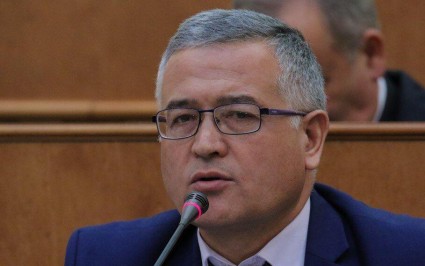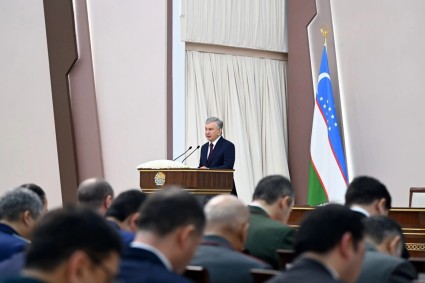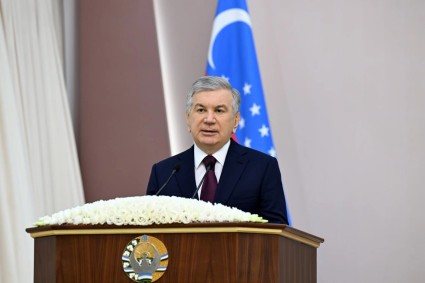The Government of Uzbekistan Ministry of Public Education is committed to an ambitious program of systematic and comprehensive reforms. Uzbekistan is working to create an education system that can produce graduates with the critical thinking, problem solving, and practical skills that will enable them to succeed.
The reform agenda is intended to transform the instructional practices of the teaching workforce, moving away from a focus on rote and fact learning toward enhancing students’ ability to apply knowledge.
To support the Ministry of Public Education in achieving its reform agenda, the U.S. Agency for International Development (USAID) initiated the 4-year, $19.5 million Uzbekistan Education for Excellence Program in December 2019. The program aims to achieve and sustain four overarching results:
- Improved outcomes in Uzbek mother tongue reading;
- Improved outcomes in mathematics;
- Enhanced information and communication technology (ICT) instruction; and
- Improved English as a foreign language instruction.
Cross-cutting themes include capacity building, gender equality and social inclusion, transparency, local ownership, and sustainability.
To achieve these results, the Uzbekistan Education for Excellence Program will utilize a twin-track approach to capacity enhancement and work with core teams of change agents from across Uzbekistan. This twin-track approach will mainstream capacity enhancement principles and practices within all activities and provide targeted professional development for specific individuals and groups. In collaboration with the Uzbekistan Ministry of Public Education, the program will do the following:
- Develop relevant and appropriate student learning standards for four subjects: Uzbek mother tongue reading, mathematics, ICT, and English as a foreign language
- Update and pilot revised teaching and learning materials for these four subjects
- Design and implement an in-service teacher professional development and support approach
- Conduct program monitoring, evaluation, and learning activities, including impact evaluation research.
Students in up to 1,000 general secondary schools and approximately 12,000 primary school teachers, school administrators, and instructional coaches will benefit from the USAID-funded Uzbekistan Education for Excellence Program at the school level. At the national level, the program will work with key stakeholders to produce student learning standards, scope and sequence prototypes, student textbooks, and teacher guides. The Uzbekistan Education for Excellence Program will also introduce a digital platform to store materials and engage education personnel virtually.
The Uzbekistan Education for Excellence Program is implemented by a consortium of implementing partners including RTI International as the lead organization, Florida State University, and Mississippi State University.













